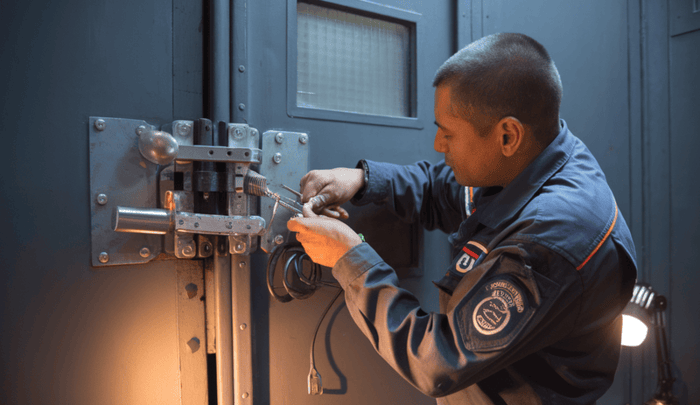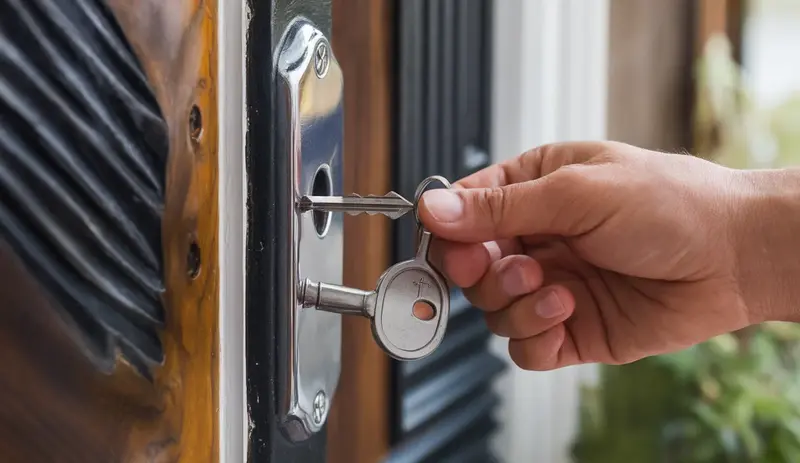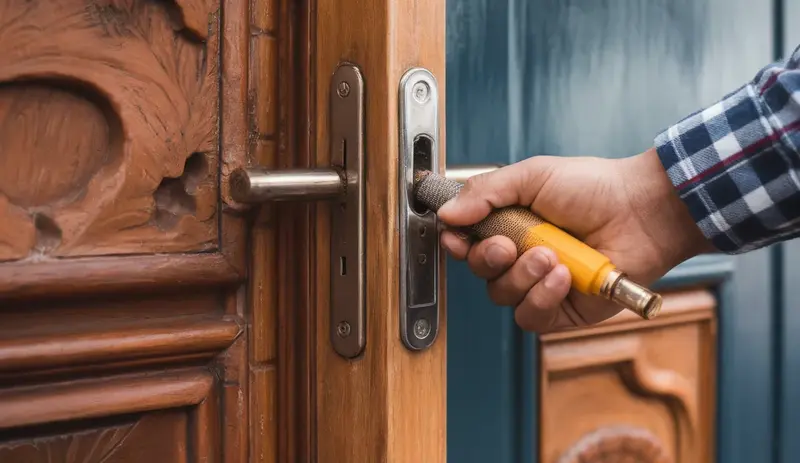
You just spent serious money on a top-of-the-line security lock for your home or business. It’s supposed to be the Fort Knox of door protection. But now? The darn thing won’t budge. Your key turns halfway, then stops. Or maybe the electronic keypad is acting like it’s having a mood swing.
Your heart starts racing – did you just waste hundreds of dollars on a lock that doesn’t work? Before you panic, take a deep breath. High-security locks are complex, but that doesn’t mean they’re impossible to repair.
Many professional locksmiths actually specialize in these tricky systems, and they might be able to save you from a total replacement.
What Makes a Lock “High-Security” Anyway?
High-security locks are not your typical deadbolts of yesteryear. They are modern, technological wonders that rely not only on the old principles of good mechanical engineering (with some dynamite physical craftsmanship thrown in) but also on state-of-the-art electronics so that they are extraordinarily reliable yet extraordinarily hard (not quite impossible) to pick, bump, or otherwise defeat.
Most high-security lock systems not only use very secure keys but also use very secure keyways.
Envision them as a stronghold. Regular locks are somewhat comparable to an uncomplicated wooden gate, while secure locks resemble vaults. They use complicated methods of operation that sometimes come close to employing 21st-century technologies for the purposes of 19th-century security.
Things like electronic keypads, biometric sensors, and smart locks (which are not necessarily very smart at all) tend to rely on one foundational principle: making sure a human with the right kind of access (or, in the case of some smart locks, the right kind of hack) has the best possible chance of getting through.
Signs Your High-Security Lock Needs Professional Help
What does this mean for you, though? High-security locks can have problems that aren’t easily solved or beckoning for even a skilled handyman with a YouTube tutorial to attempt a fix.
The most common issue is with electronic malfunctions, and if your keypad is having tantrums—recognizing some codes but not others, flickering in and out of various modes, or simply not responding—then you’re looking at a job best left to the professionals.
Another serious concern is mechanical jamming. These locks have precision parts, and when those parts misalign or wear down over time, key turn resistance can develop, or, the lock may refuse to engage until it has been forced.
Most people don’t realize that when we force locks, we’re actually making them more likely to jam and not turn smoothly.
You May Like: What are the Best Locks for Commercial Properties In 2025?
What Professional Locksmiths Can Actually Repair
Expert locksmiths who work with high-security systems perform delicate surgeries on complex locks. Their procedures might involve restoring an electronic keypad to perfect working order-replacing circuit boards, for instance, or recalibrating sensors that have seen better days.
Another critical service performed by these professionals is sophisticated mechanism realignment, which is a fancy way of saying that they get all the internal components of a lock working together again.
Repairing circuit boards necessitates a specialized set of tools and an extensive level of know-how. You’re not going to be successful doing this with just a screwdriver and some guided steps from YouTube.
These components are precisely calibrated to work together, and when working together, to implement the (often wildly complex) tasks assigned to them by some (also complex and often specialized) software and by the electrical signals that their designer intended to make them respond in the ways they actually do respond.
What Might Require a Total Lock Replacement
There are occasions when repairs will not suffice. When the internal damage is severe, particularly to electronic systems, it’s often more cost-effective to swap the entire lock.
If the model you have is no longer made or if the internal parts have so degraded that patching them back together would cost more than a new lock, replacement becomes the better option.
Another red flag is when security components are compromised. In a high-security system, even a tiny vulnerability can introduce you to some serious risks. So if a locksmith tells you it is necessary to replace something, they are putting your security ahead of a quick fix.
Finding the Right Locksmith for High-Security Systems
Locksmiths are not all equal. When working with high-security locks, you should have someone who is certified to work with electronic security systems. Ensure that they have had extensive experience with your specific lock brand. Additionally, make sure they have the necessary documentation proving their specialized training.
If you have to deal with a lock repair technician, look out for these red flags. They might not be able to explain the repair process clearly. They might not have verifiable credentials. And they might be unsure about the complex electronic components in modern locks.
Real-World Cost Considerations
Let’s be a penny wise and practical about costs. Repairing a high-security lock can set you back anywhere from $150 to $500, depending on how intricate your particular locking mechanism is and how profound the repairs need to be. If the lock is too far gone to be repaired, and you must replace it, expect to pay anywhere from $300 to $1000.
Always check your warranty first; you might be covered. Then check your potential insurance implications; if you have to go it alone without a warranty, it might also be a tax deduction.
The crux of the matter is knowing when it makes financial and security sense to repair. A high-security locksmith like Doctor Lock can assist you in these delicate decisions, making sure that your expensive, top-of-the-line lock continues to do its primary job: keeping you safe. You can find our local service location on Google Maps.
High-security locks are complex machines, not just simple metal pieces. While not every issue means total replacement, you’ll want a true professional who understands these intricate systems.
Don’t try DIY repairs – one wrong move could permanently disable an expensive lock. Always consult a certified, experienced locksmith who specializes in high-end security mechanisms. Bonus Pro Tip: Always keep your original documentation and warranty information. Some manufacturers might cover repairs or replacements you didn’t expect.


